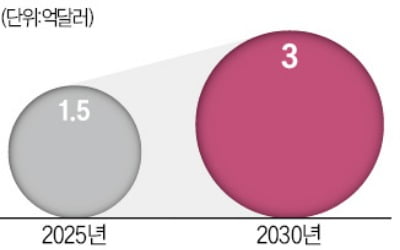[다산 칼럼] 단일통화가 부른 유로존 혼돈
-
기사 스크랩
-
공유
-
댓글
-
클린뷰
-
프린트
경제 배경 달라…예견된 위기
그리스 디폴트 뒤 통화 복귀해야
손성원 < 캘리포니아대 석좌교수 >
그리스 디폴트 뒤 통화 복귀해야
손성원 < 캘리포니아대 석좌교수 >
해법에 도달하기 위해서는 정확한 원인분석이 있어야 한다. 유로존(유로화 사용 17개국)의 정치인들은 단순히 문제가 과도한 재정지출에 있다고 생각해 재정적자 감축을 처방으로 내놓는다. 이는 경제성장 축소,실업률 증가로 이어진다.
그리스 포르투갈 스페인 등과 같이 씀씀이가 헤픈 국가들에 책임이 있다는 것은 확실하다. 이들이 허리띠를 졸라매야 하는 건 맞다. 하지만 더 큰 문제는 유로화다. 간단히 말해 독일과 그리스가 같은 통화를 쓰는 것은 이치에 맞지 않다. 독일은 단일통화를 통해 유럽 안에서 수출을 늘릴 수 있었다. 하지만 (상대적으로 비싼 통화를 갖게 된) 그리스는 수출길이 막막해졌다. 게다가 유로화는 남유럽 국가들의 무리한 차입을 부추겼다.
단일통화 연구로 노벨 경제학상을 받은 로버트 먼델 교수는 단일 통화가 성공을 거두기 위한 조건을 제시했다. 그 중 하나는 경제적 · 문화적 배경이 비슷해야 한다는 것이다. 이 부분에서 독일과 그리스는 공통점이 거의 없다. 경제적 문화적 유산의 측면에서 볼 때 두 국가는 양 극단에 있다. 먼델 교수는 오늘날 유로존이 직면한 혼돈을 정확하게 예견한 셈이다.
유럽중앙은행(ECB)도 희생자가 될 수 있다. ECB는 그리스 포르투갈 스페인 국채를 사들이고 있다. 그리고 이들 국가의 국채를 주된 자산으로 갖고 있는 은행들에도 돈을 빌려주고 있다. 예금자들이 떠난 공백을 ECB가 메워주고 있는 셈이다.
그리스와 같은 재정위기 국가가 디폴트(채무불이행)되면 독일과 같은 돈 있는 국가들은 수조달러를 조달해야 한다. ECB에 의한 손실은 회원국 중앙은행들이 메워야 하기 때문에 세금은 올라갈 수밖에 없다. 디폴트 시나리오에서 가장 많은 세금을 내야 하는 독일 국민들은 걱정이 쌓일 만하다.
다행스럽게도 그리스는 미국 로스앤젤레스만한 크기에 인구 1100만명의 작은 국가다. 하지만 그보다 몇 배 큰 이탈리아가 쓰러진다면? 독일을 포함해 유럽 내 어떤 국가도 이 같은 위험을 감당할 수 없다.
그렇다면 해결책은 무엇인가. 그리스는 디폴트를 선언하고 유로존에서 탈퇴해야 한다. 그리스 부채문제는 일반 기업의 채무 문제와 같은 방식으로 다뤄져야 한다. 상당한 양의 채무면제가 뒤따라야 한다. 요즘 그리스 국채는 시장에서 액면가보다 60% 할인된 가격에 거래되고 있다. 할인폭은 더 커질 수 있다. 경제성장률이 곤두박질치는 상황에서 그리스가 부채를 감당할 방법은 없다. 그리스에 돈을 빌려준 은행들이 부채의 70%를 탕감하는 것이 비합리적인 것은 아니다. 채무면제를 통해 그리스 경제는 다시 성장할 수 있다.
그리스 국채는 예외적으로 지난 7월에 있었던 합의에 따라 21% 상각됐다. 독일 프랑스 영국 은행들은 자본시장이나 정부개입을 통해 자본을 확충해야 할 것으로 보인다. 이는 은행과 정치권이 꺼려왔던 고통스러운 처방이다.
다음 단계는 그리스가 유로존에서 탈퇴하는 것이다. 그리스의 경제성장을 위한 새로운 궤도는 부채의 70%를 면제받고 유로존의 추가 지원 아래 예전 통화인 드라크마로 복귀하는 것이다. 이 같은 단계를 통해 유로존은 재정위기의 전염이라는 가장 큰 우려에서 벗어날 수 있다.
정리=정성택 기자 naive@hankyung.com
◇영어원문은 한경닷컴(www.hankyung.com)에서 볼 수 있습니다.
Greece Should Default
Dr.Sung Won Sohn
Martin V. Smith professor of economics and finance at a California State University CI
The financial crisis is Europe is getting worse, not better. The latest bailout package from Germany may buy some breathing room, but won't solve the financial crisis in Europe. Greece has tough time meeting its budget targets. Unless correct solutions are found, it could push the developed economies into a double-dip recession hurting other export dependent nations like China and Korea.
In order to arrive at a solution, the cause must be diagnosed correctly. The politicians in the Euro-zone seem to think that the problem is simply overspending by a profligate country like Greece. So the prescription is tosqueeze budget deficits, contract economic growth and increase the unemployment rate.
To be sure, the spendthrift countries like Greece, Portugal, Spain, etc. are not blameless. They must tighten belts. But there are bigger problems like the structure of the euro. Simply put, it makes no sense for Germany and Greece to be in bed together. The Euro has been good for Germany boosting its exports within Europe. The currency has been bad for Greece stifling its exports. In addition, it encouraged the southern European countries to borrow recklessly.
The father of a common currency, like the euro, is Professor Robert Mundell, who won the Nobel prize based on his work on the currency union. In his article, he listed conditions which must be met before it can be successful. One of the conditions is that the economic and cultural backgrounds must be similar. Germany and Greece have very little in common. They are at the polar opposites in terms of economic and cultural heritages. Professor Mundell's article correctly predicted the turbulence facing the euro-zone today.
In the meantime, the European economic fish is smelling worse and worse.This is exactly what Japan did in the 1990's. The government and the banks pretended that the bad loan problems would go away if more loans were given to the bankrupt companies, the "zombies". Eventually, both the government and the financial institutions decided to bite the bullet and restructured both the borrowers and the commercial banks which lent the money. Many businesses and banks were closed or merged. Thanks to the painful steps they took, the Japanese economy gradually came out of the "lost decade".
Unless the problems are addressed correctly, the European Central Bank (ECB) could be one of the casualties unless the problems in the eurozone is addressed quickly.
The ECB has been buying the sovereign debt from Greece, Portugal, Spain and Portugal. It also has been lending money to banks whose main assets are the same sovereign debt. Depositors have been fleeing the banks and the ECB is making up the difference. In short, the ECB has been lending good money after bad.
When some of these countries, like Greece, default, the rich nations like Germany would have to pony up trillion of dollars. Since the loss by ECB has to be made up by its member banks, taxes would have to rise.
The German citizens, who would have to pay the most in taxes in any default scenario, are understandably worried. Even though the Bundestag has approved a higher limit for the bailout fund at the urging of the Chancellor Angela Merkel, there is a strong political pressure to limit the largess to the bailout.
Fortunately, Greece is a small economy with only 11 million people, about the same size as the city of Los Angeles.But what happens if Italy, which is several times larger than Greece, can't roll over its debt? No country, including Germany, is big enough to override the ensuing financial turbulence.
Originally, the Germans supported the creation of the euro believing that the economic integration is the best way to prevent another World War. Today, the young Germans believe that there is a scant chance of another war. They are more concerned about their own economic stability and prosperity. There is a strong opposition to the Eurobond which would make the Eurozone collectively liable for its member's debts. Many political leaders including Chancellor Merkel oppose the bond. The Eurobond is not a solution especially when there is no fiscal union in the Eurozone.
Unfortunately, the ECB is doing something similar to issuing bonds when it buys debts from the troubled countries. More and more investors are concerned about the financial soundness of the ECB.
Then, what is the solution? The Greece must default and leave the euro.
The Greek debt should be treated like any business commercial debt. A sizable portion of the debt should be forgiven. Today, the Greek debt trades at a 60 percent discount in the marketplace. The discount could go much higher.In the face of the contracting economy, there is no way the country can ever service its outstanding debt. A 70 percent debt write-off by the banks which lent the money is not unreasonable. With the debt-forgiveness, the Greek economy can grow again.
The banks, which lent the money to countries like Greece, must recognize the loss. At the moment, the banks have been carrying the sovereign debts at face value. One exception is the Greek sovereign debt with a 21 percent hair cut as a result of the July negotiation. Most likely, many of the banks in Germany, France and the U.K. will have to be recapitalized either through the capital markets or government intervention. This is the painful medicine the banks and the European politicians have been trying to avoid.
The next step is for Greece to leave the euro. With the 70 percent forgiveness of debt and additional financial support from the Eurozone, the return of the drachma, the former Greek currency, should put the country in a new course for economic growth.
By taking these steps, the biggest concern, the contagion of the European problem could be prevented.

